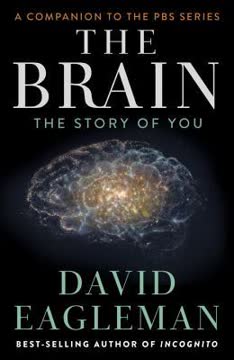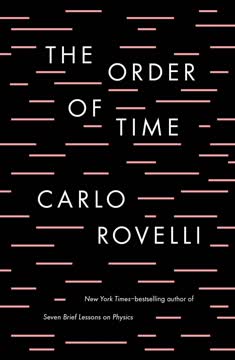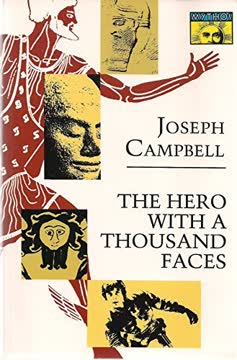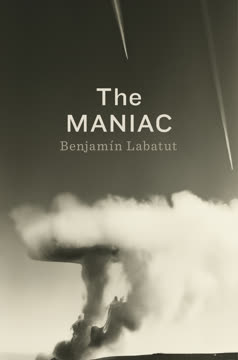Key Takeaways
1. Time is a fundamental yet enigmatic concept that has puzzled thinkers for millennia
"There seems to be no such thing as time, neither on the basis of experience nor according to Maxwell's equations."
Time is paradoxical. Despite its ubiquity in human experience, time has defied simple definition or explanation. Ancient philosophers like Heraclitus and Parmenides debated whether change or permanence was more fundamental. Augustine famously remarked that he knew what time was until asked to explain it.
Scientific attempts to understand time have revealed its strangeness:
- Special relativity showed that the passage of time is relative to the observer's motion
- Quantum mechanics introduced probabilistic time at small scales
- General relativity describes how gravity warps spacetime
- Thermodynamics points to an arrow of time via increasing entropy
Yet fundamental questions remain unresolved:
- Does time flow, or is that an illusion?
- Did time have a beginning with the Big Bang?
- Is time fundamental or emergent from more basic phenomena?
2. Ancient civilizations developed diverse conceptions of time and sophisticated timekeeping methods
"Neanderthal burials are typically just shallow pits that seem to lack any unambiguous 'grave goods' or other evidence of accompanying ritual. Only with the rise of modern humans do we see clear evidence of grave goods – tools, jewelry, and other items that would presumably be of use in the next life."
Time shaped culture. Ancient societies developed diverse conceptions of time, often tied to natural cycles and religious beliefs. These conceptions profoundly influenced their cultures, rituals, and ways of living.
Key developments in ancient timekeeping:
- Egyptians used sundials and water clocks
- Babylonians developed a base-60 number system still used for time
- Mayans created an intricate calendar system
- Stonehenge and other megaliths aligned with celestial events
Ancient time concepts varied widely:
- Cyclic time in Hinduism and Buddhism
- Linear time in Judeo-Christian tradition
- "Event time" in some African cultures
- Dreamtime in Aboriginal Australian culture
These diverse time concepts reflect how deeply notions of time are embedded in human culture and cognition.
3. Newton's absolute time gave way to Einstein's relative spacetime, revolutionizing physics
"Einstein's paper was shocking precisely because time is – or was supposed to be – so simple."
Einstein shattered time. Isaac Newton conceived of time as absolute and universal, flowing uniformly for all observers. This view held for centuries until Albert Einstein's theories of relativity completely transformed our understanding of time.
Key aspects of Einstein's revolution:
- Special relativity showed time is relative to the observer's motion
- Time dilation occurs at high speeds
- Simultaneity is relative; events simultaneous for one observer may not be for another
- General relativity revealed gravity's effect on time
- Spacetime unified space and time into a four-dimensional continuum
Consequences of relativity:
- No universal "now" exists across the universe
- Time can slow down near massive objects or at high speeds
- The twin paradox: a twin traveling at high speed would age less than their earthbound sibling
Einstein's insights continue to be confirmed by increasingly precise experiments and have profound implications for our understanding of the cosmos.
4. The arrow of time and entropy reveal the universe's tendency towards disorder
"The second law of thermodynamics tells us – in very sort of commonplace terms – that things get more random as time goes on."
Entropy drives time's arrow. While most laws of physics are time-symmetric, the second law of thermodynamics introduces a clear direction to time. Entropy, a measure of disorder, always increases in closed systems over time.
Manifestations of the arrow of time:
- Eggs break but don't unbreak
- Heat flows from hot to cold objects
- Memories exist of the past but not the future
- The universe expands rather than contracts
However, the origin of time's arrow remains puzzling:
- Why was entropy low in the early universe?
- How does microscopic time-symmetry lead to macroscopic asymmetry?
- Is the arrow of time fundamental or emergent?
The arrow of time shapes our everyday experience and may ultimately determine the fate of the universe, potentially leading to a state of maximum entropy and "heat death."
5. Quantum mechanics introduced probabilistic time and uncertainty at the microscopic scale
"Anyone who is not shocked by quantum theory has not understood it."
Time gets fuzzy. Quantum mechanics, developed in the early 20th century, revealed a probabilistic and uncertain world at the microscopic scale. This radically changed our understanding of time at the most fundamental level.
Key quantum concepts affecting time:
- Wave-particle duality
- Heisenberg uncertainty principle
- Quantum superposition
- Wave function collapse upon measurement
Implications for time:
- Time may be quantized at extremely small scales
- The "quantum Zeno effect" can freeze atomic transitions
- Quantum entanglement allows "spooky action at a distance"
- Some interpretations suggest parallel timelines or multiple worlds
Quantum mechanics challenges classical notions of causality and determinism, suggesting a more fluid and probabilistic nature of time at the smallest scales. Reconciling quantum mechanics with general relativity remains a major challenge in theoretical physics.
6. The Big Bang theory and cosmic inflation describe the origin and evolution of the universe
"Conceivably, everything can be created from nothing … In the context of inflationary cosmology, it is fair to say that the universe is the ultimate free lunch."
The universe had a beginning. The Big Bang theory, supported by extensive observational evidence, describes the origin and evolution of the universe from an incredibly hot, dense state about 13.8 billion years ago. Cosmic inflation theory extends this model to explain the universe's large-scale structure and uniformity.
Key evidence for the Big Bang:
- Cosmic microwave background radiation
- Abundance of light elements
- Expansion of the universe
- Large-scale structure of the cosmos
Cosmic inflation proposes that:
- The early universe underwent a period of exponential expansion
- This expansion smoothed out irregularities
- Quantum fluctuations during inflation seeded cosmic structure
Open questions remain:
- What caused the Big Bang?
- What drove inflation?
- Did time itself begin with the Big Bang?
These theories have transformed our understanding of cosmic history and the nature of time itself, suggesting that time as we know it may have emerged with the universe.
7. The future of the universe may be eternal expansion and ultimate heat death
"Very little... The universe would be very, very dark, very diffuse."
The cosmos faces a cold fate. Current observations suggest the universe is expanding at an accelerating rate, driven by mysterious dark energy. This expansion is likely to continue indefinitely, leading to a bleak scenario for the far future.
Stages in the universe's future:
- Galaxies beyond our local group will recede beyond view
- Stars will exhaust their fuel
- Black holes will dominate, then evaporate via Hawking radiation
- Particles will be scattered across vast distances
The "heat death" scenario:
- Maximum entropy reached
- No usable energy remaining
- No complex structures or processes possible
This grim forecast spans incomprehensibly vast timescales:
- Trillions of years for stars to burn out
- 10^100 years for largest black holes to evaporate
However, uncertainties remain about dark energy and potential unknown physics that could alter this fate.
8. Time travel to the past faces logical paradoxes, but the future may be accessible
"Einstein's equations of general relativity not only do not directly forbid such possibilities, they encourage them."
Time travel tantalizes. The possibility of time travel has long captured the human imagination. While Einstein's theories allow for the mathematical possibility of closed timelike curves (paths through spacetime that return to their starting point in time), significant obstacles remain.
Challenges for past time travel:
- Grandfather paradox and other logical contradictions
- Violation of causality
- Enormous energy requirements
- No observed time travelers from the future
Potential methods proposed:
- Wormholes
- Cosmic strings
- Rapidly rotating cylinders
Future time travel is more plausible:
- Time dilation allows "travel" to the future at high speeds
- This effect has been measured with atomic clocks on aircraft
While past time travel remains highly speculative, the malleability of time in relativity suggests the future may be more accessible than previously thought.
9. Consciousness and memory shape our subjective experience of time's passage
"Evolution has built our minds like it's built our bodies. So we're good at thinking about the world in certain ways, and we're comfortable with certain concepts."
Minds construct time. Our subjective experience of time's flow may be a product of consciousness and memory rather than a fundamental feature of the universe. This perspective aligns with the "block universe" view suggested by relativity, where all moments exist equally.
Factors shaping time perception:
- Episodic memory allows mental time travel
- Anticipation of future events
- Circadian rhythms and biological clocks
- Attention and emotional state
Psychological time phenomena:
- Time seems to slow during intense experiences
- Time flies when we're having fun
- Perception of duration can be manipulated experimentally
Some philosophers and scientists argue that the flow of time is an illusion created by our minds to make sense of change and causality. This view challenges our intuitive understanding of time but may align better with physical theories.
10. The nature of time remains an open question at the intersection of physics and philosophy
"We don't know what happened at the big bang... But one thing we know for sure is that the whole idea of space and time breaks down – so the idea of what came 'before' may not even make sense."
Time defies consensus. Despite centuries of inquiry and remarkable scientific advances, the fundamental nature of time remains elusive. The problem of time sits at the intersection of physics, philosophy, and human experience, resisting simple resolution.
Key open questions about time:
- Is time fundamental or emergent?
- Does time flow, or is that an illusion?
- How does quantum mechanics affect time?
- What is the relationship between time and consciousness?
- Can a theory of quantum gravity resolve time's puzzles?
Competing perspectives:
- Time as a dimension in block universe (relativity)
- Time as emergent from more fundamental phenomena
- Time as deeply connected to human consciousness
Resolving these questions may require new physical theories, philosophical insights, or a radical rethinking of the nature of reality itself. The enigma of time continues to drive scientific inquiry and philosophical debate.
Last updated:
FAQ
1. What is "In Search of Time: The Science of a Curious Dimension" by Dan Falk about?
- Multifaceted exploration of time: The book investigates the nature of time from scientific, philosophical, and cultural perspectives, tracing humanity’s evolving understanding from ancient cycles to modern physics.
- Historical and scientific journey: Dan Falk covers topics such as natural cycles, calendars, clocks, relativity, quantum theory, time travel, and cosmology, connecting ancient monuments to atomic clocks.
- Philosophical and psychological dimensions: The narrative delves into how time is perceived by the mind, the illusion of time’s flow, and metaphysical debates about the reality of past, present, and future.
- Interdisciplinary approach: Falk weaves together insights from physics, philosophy, anthropology, and neuroscience to present time as a "curious dimension" that challenges our everyday perceptions.
2. Why should I read "In Search of Time" by Dan Falk?
- Comprehensive and accessible: The book offers a thorough yet approachable journey through the history, science, and philosophy of time, making complex ideas understandable without heavy jargon.
- Engaging storytelling: Falk combines scientific rigor with personal stories, interviews with leading thinkers, and vivid historical anecdotes, making abstract concepts relatable and memorable.
- Interdisciplinary insights: Readers gain a holistic view of time, connecting ancient cultural views with cutting-edge physics and modern philosophical debates.
- Challenges assumptions: The book encourages readers to rethink common beliefs about time, such as the existence of a universal “now” or the flow of time.
3. What are the key takeaways from "In Search of Time" by Dan Falk?
- Time is multifaceted: Time is not just a physical dimension but also a cultural, psychological, and philosophical concept, with no single discipline holding all the answers.
- Scientific revolutions: Developments like relativity and quantum mechanics have radically changed our understanding of time, challenging notions of absolute simultaneity and deterministic causality.
- Human perception matters: Our experience of time’s flow is shaped by memory, consciousness, and culture, and may be an illusion rather than a fundamental property of the universe.
- Ongoing mysteries: Despite advances, questions about the origin, direction, and ultimate fate of time remain open, making time one of the deepest mysteries in science and philosophy.
4. How did ancient civilizations track and understand time according to Dan Falk?
- Natural cycles as guides: Early humans used the sun, moon, and stars to mark days, months, and years, leading to the construction of monuments like Newgrange aligned with celestial events.
- Development of calendars: Civilizations such as the Babylonians, Egyptians, and Maya created sophisticated calendars based on lunar and solar cycles, with innovations like the 19-year Metonic cycle.
- Cultural and religious significance: Timekeeping was deeply tied to religious rituals and social organization, with some cultures viewing time as cyclical and others as linear.
- Diverse worldviews: These differing conceptions of time influenced everything from daily life to cosmological beliefs.
5. What are the major scientific breakthroughs about time explained in "In Search of Time"?
- Relativity and time dilation: Einstein’s special and general relativity show that time is relative, affected by motion and gravity, leading to phenomena like time dilation and the relativity of simultaneity.
- Spacetime framework: The book introduces the concept of four-dimensional spacetime, where space and time are intertwined, and events are defined by their position in this continuum.
- Quantum mechanics and indeterminacy: Quantum theory introduces probabilistic behavior and the idea that measurement collapses possibilities into a single outcome, linking quantum processes to the arrow of time.
- Cosmological implications: Theories like the big bang, cosmic inflation, and the ultimate fate of the universe are discussed in relation to the origin and end of time.
6. How does Dan Falk explain the concept of time in physics, especially regarding Newton and Einstein?
- Newton’s absolute time: Newton described time as absolute, flowing uniformly and independently of events, providing a fixed backdrop for physical laws.
- Einstein’s relativity: Special relativity overturned this view, showing that time is relative to the observer’s motion, and that simultaneity is not universal.
- Spacetime and causality: Events are located in spacetime, with light cones defining what can causally influence what, fundamentally changing our understanding of time and space.
- Gravitational time dilation: General relativity adds that gravity warps spacetime, causing clocks to run slower near massive objects.
7. What is the "arrow of time" and how is it related to entropy in "In Search of Time"?
- Direction from entropy: The arrow of time is linked to the second law of thermodynamics, which states that entropy (disorder) in a closed system always increases, giving time a direction from past to future.
- Statistical explanation: While physical laws are time-symmetric, the statistical improbability of entropy decreasing explains why we observe irreversible processes.
- Cosmological context: The universe’s low-entropy initial state is crucial for understanding the arrow of time, a topic explored in cosmology.
- Psychological connection: Our perception of time’s flow aligns with the thermodynamic arrow, as memory and causality depend on increasing entropy.
8. How does "In Search of Time" describe the relativity of simultaneity and its implications?
- No universal “now”: Simultaneity is not absolute but depends on the observer’s frame of reference; two events simultaneous for one observer may not be for another.
- Illustrative thought experiments: Falk uses examples like the moving train and flashes of light to show how relative motion affects the perception of simultaneous events.
- Profound implications: This challenges the common-sense notion of a universal present and dissolves the idea of a master clock for the universe.
- Foundational insight: The relativity of simultaneity is described as one of the deepest insights into the nature of reality.
9. How does Dan Falk address the psychological and philosophical experience of time’s flow in "In Search of Time"?
- Flow as an illusion: Many physicists and philosophers argue that the flow of time is a construct of the mind, not a fundamental property of the universe.
- Role of memory and consciousness: Our brains assemble sensory data into a narrative, creating the sensation of a moving present and aligning psychological time with physical processes.
- Philosophical debates: The book explores the tension between the block universe view (where all moments exist equally) and our lived experience of temporal passage.
- Diverse perspectives: Thinkers like Julian Barbour argue for timelessness, while others like Lee Smolin defend the reality of time’s flow.
10. What does "In Search of Time" by Dan Falk say about time travel and its scientific plausibility?
- Forward time travel: Time dilation in relativity allows for travel into the future, as seen in astronauts aging more slowly due to high speeds or strong gravity.
- Backward time travel challenges: Theoretical possibilities like wormholes and closed timelike curves are discussed, but they raise paradoxes such as the grandfather paradox.
- Current research: Physicists like Ronald Mallett and John Cramer explore time travel concepts, but practical and theoretical obstacles remain significant.
- Skepticism and limits: Mainstream physics is skeptical, with ideas like Hawking’s “chronology protection conjecture” suggesting nature forbids macroscopic time travel.
11. How does "In Search of Time" by Dan Falk explore cultural differences in the perception of time?
- Cyclic vs. linear time: Some cultures, like the Maya and Hindus, view time as cyclical, while Western traditions often see it as linear and irreversible.
- Event-based timekeeping: Many African and indigenous cultures measure time by activities and social events rather than by clocks, leading to flexible temporal concepts.
- Language and metaphors: The Aymara people, for example, gesture forward for the past and backward for the future, illustrating how language shapes temporal understanding.
- Impact on daily life: These cultural differences influence rituals, social organization, and even the pace of life in different societies.
12. What are the main philosophical perspectives on time discussed in "In Search of Time" by Dan Falk?
- Absolute vs. relational time: The debate between Newton’s absolute time and Leibniz’s relational time questions whether time exists independently or only as a measure of change.
- Tensed vs. tenseless theories: The block universe (tenseless) view holds that past, present, and future are equally real, while tensed theories emphasize the reality of the present and the flow of time.
- Time and consciousness: The book explores how human perception and memory shape our experience of time, with some arguing that the flow of time is a psychological necessity.
- Ongoing philosophical challenges: Reconciling the physical description of time with subjective experience remains a central issue in both philosophy and science.
Review Summary
In Search of Time receives mostly positive reviews, praised for its comprehensive exploration of time from historical, scientific, and philosophical perspectives. Readers appreciate Falk's accessible writing style and the book's thought-provoking nature. Some find certain sections repetitive or less engaging. Many highlight the author's ability to explain complex concepts clearly. The book covers topics like timekeeping history, relativity, and the nature of time itself. While some readers desire more depth in certain areas, most find it an informative and enjoyable read.
Similar Books










Download PDF
Download EPUB
.epub digital book format is ideal for reading ebooks on phones, tablets, and e-readers.




